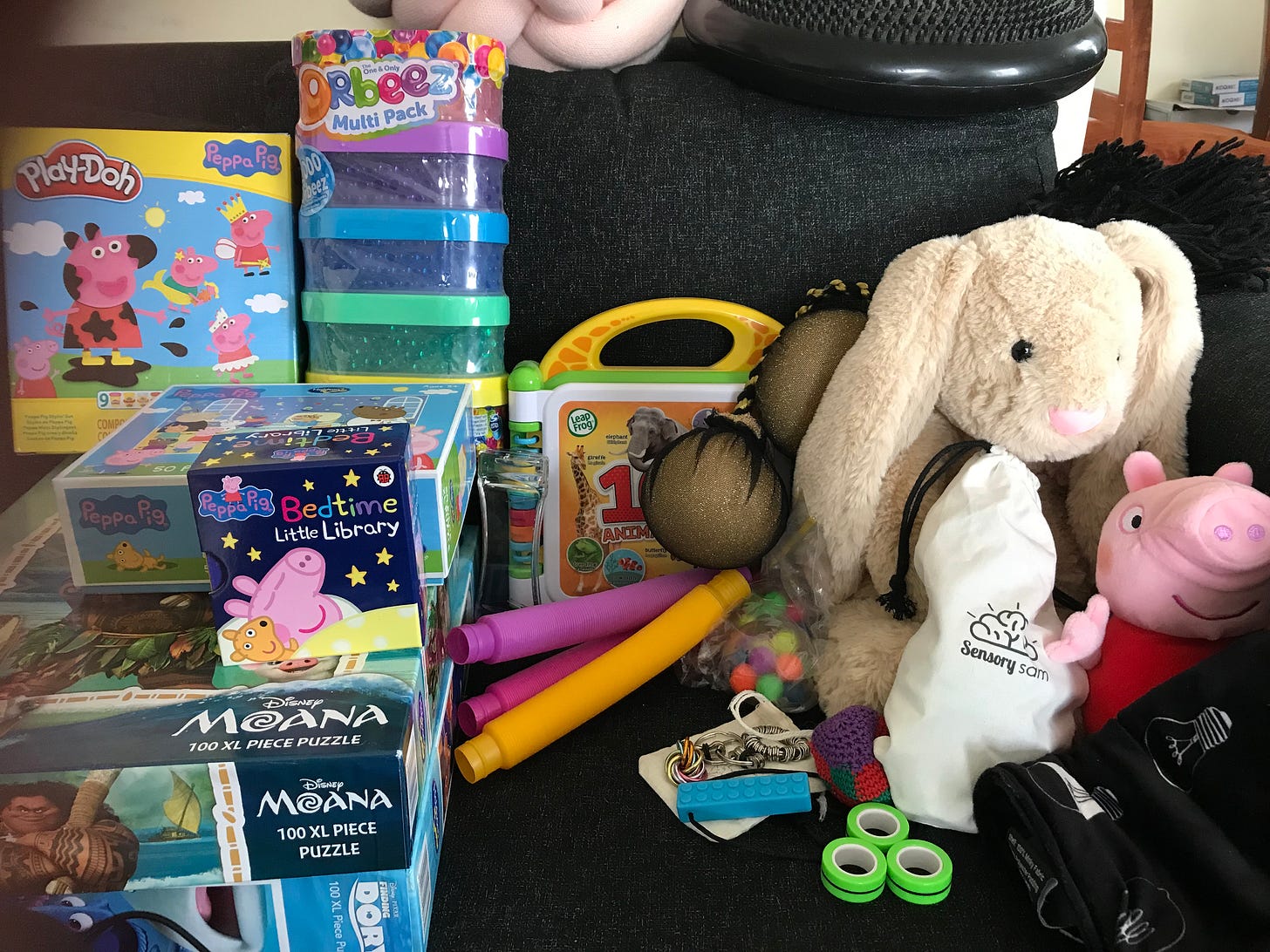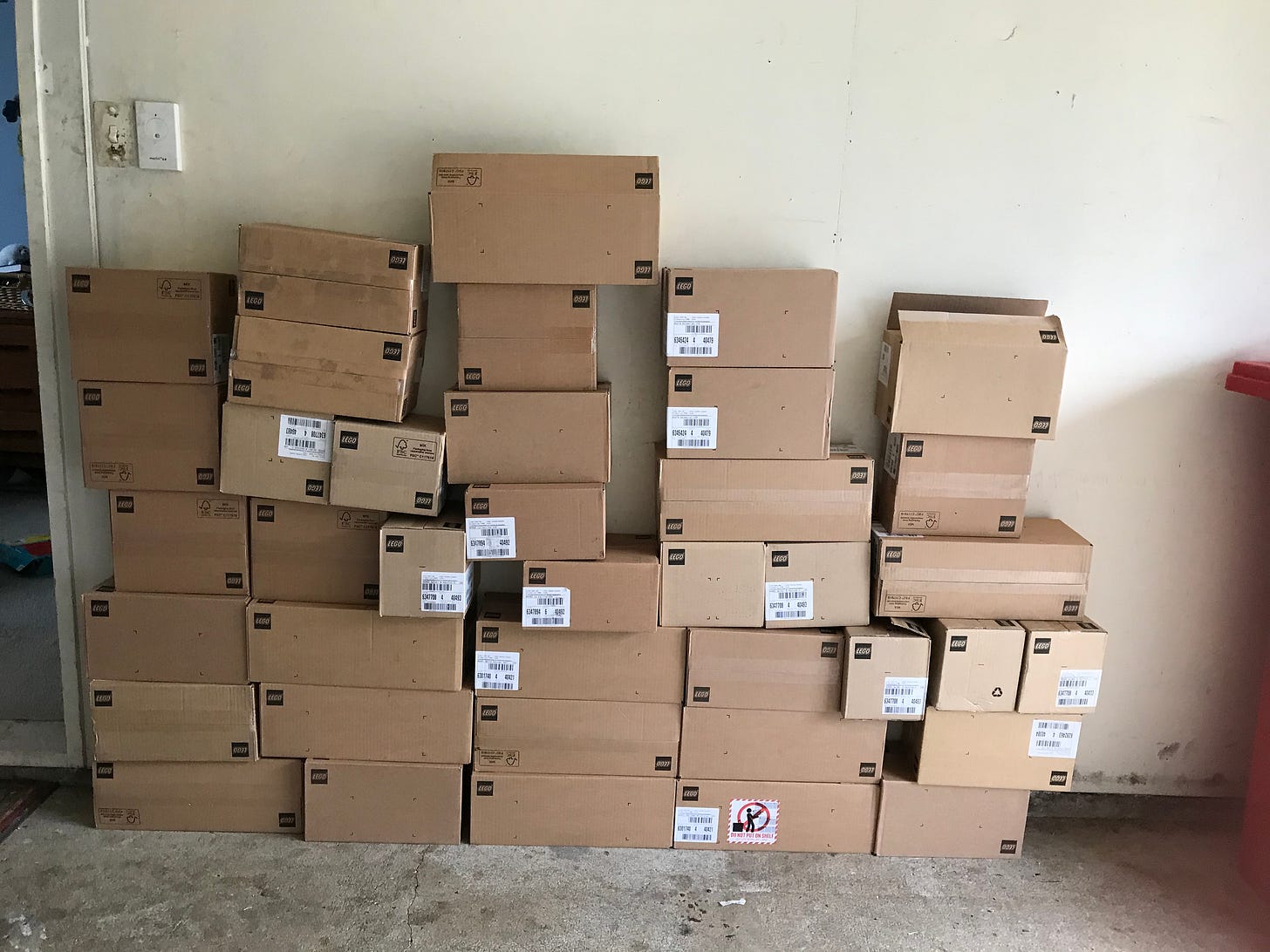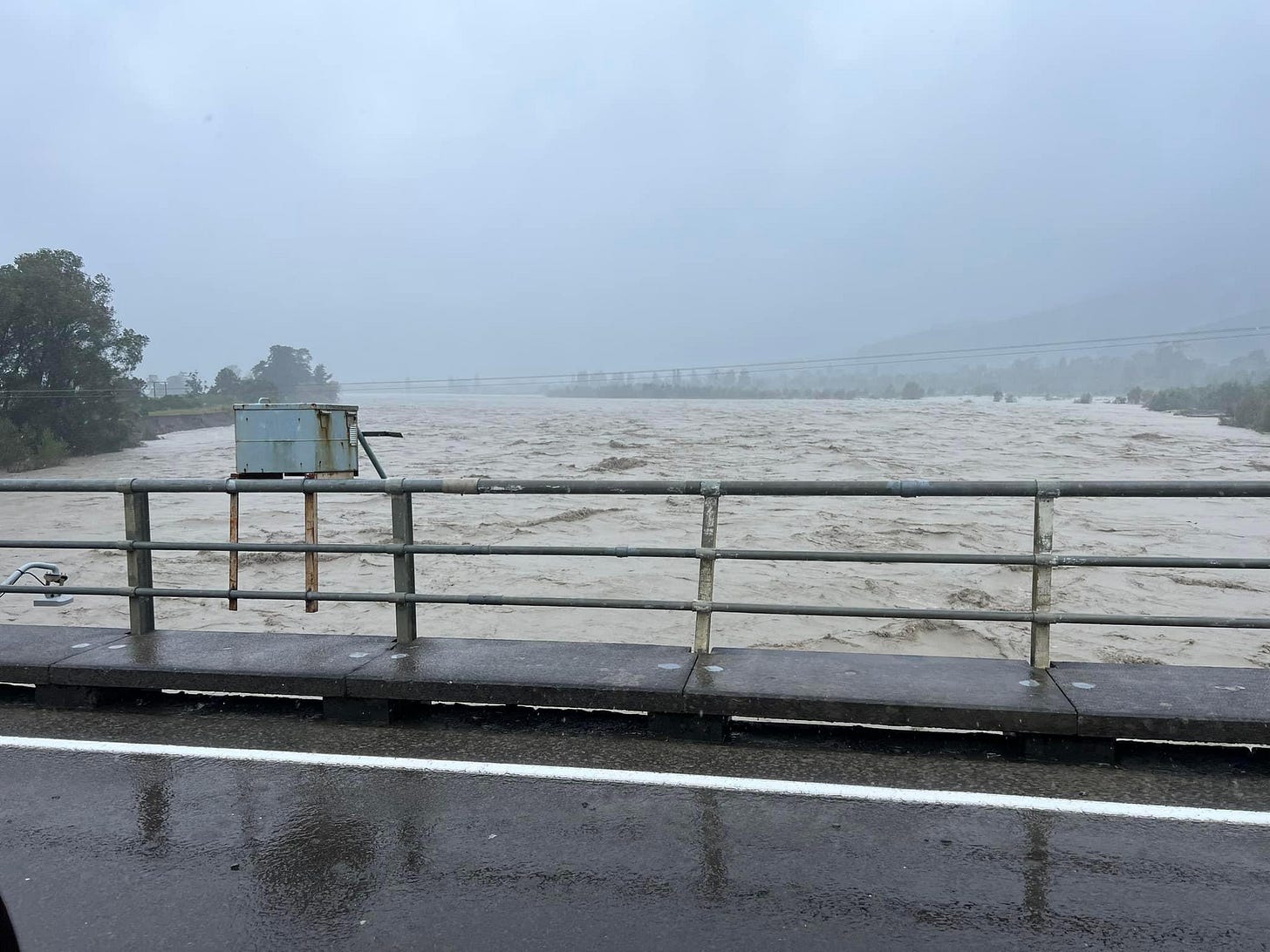Last week Dorothy Taare-Smith received a call from a māmā asking for help atop a hill, the only spot in Makarika that had any cellphone reception since Cyclone Gabrielle ravaged their region. Still without power and only accessible by helicopter, she was asking for, as Dorothy puts it “a different kind of help.” Not the kind that you can apply for on the MSD website, her takiwātanga (autistic) son who also has a very limited diet, and the food package they had been delivered had nothing in it that he could eat. The particular brands he likes that they requested, didn’t turn up in their food parcel. The main bridge in Tokomaru Bay is gone, so there’s no easy way to pop to the shops to restock the pantry.
These sorts of stories are shocking to us sitting in the comfort of our homes, scrolling through social media channels. But to Dorothy, this is her ‘normal’ right now, in very strange times.
Tairāwhiti was just one of many regions impacted by Cyclone Gabrielle two short weeks ago. Life has changed significantly for many since then, with many forced out of their homes, leaving behind their possessions, with job, food and personal security all impacted.
Dorothy is the founder, a trustee, and the heart of Taonga Takiwātanga a charitable trust that helps support whānau in Tairāwhiti with takiwātanga tamariki. She is a connector of whānau and disability providers, and has made wananga accessible for whanau, and the wider community by hosting them at marae in the region.
This kaupapa is central to this story. Whether it’s as a response to an emergency or just connecting in every day life, disability focussed organisations need to take support to the people, rather than wait for them to come to you. We are all different, we don’t all feel comfortable in an online environment. In Te Ao Māori, connection is everything, and nothing beats kanohi ki te kanohi (face to face) conversation.
This week Dorothy and I went to a zoom hui hosted by Whaikaha, Ministry of Disabled People - and as sympathetic as they, and other disability-focussed groups attending were, there was no commitment to making sure that there is cultural consideration when emergency plans are made. No action plan for Tairāwhiti. Just lots of heads nodding, and furious note taking.
Government has been proactive in making financial help available to whānau, but what good is that when they have no power, and/or reliable internet connection? What happens when they are in isolated communities, or have no connection to groups like Taonga Takiwātanga who can offer support? How do you fill in an online request for help when you have one bar of cell coverage at the top of a hill?
I listen, and I hear that families are exhausted. Our takiwātanga whānau, who rely so heavily on routine and predictability are living in a constant state of physical and emotional upheaval. Where are the appropriate supports for these families?
I think about my daughter, she’s 14. She is autistic and when she is feeling overwhelmed, her room is her sanctuary, her safe place. She can return to a place of calm when the curtains are pulled, and she is snuggled under her weighted blanket. Sometimes she uses sound cancelling headphones. She always watches youtube to lower heightened moods. She always has her favourite toy at her side. She has favourite clothes as other scratchy fabrics agitate her like she has a swarm of bees under her shirt. She has her bath at the same time every day, between an after-school snack, and before The Chase is on TV. She clings to her routines, that make her feel grounded and safe.
...What if suddenly all her favourite things were no longer available to her, what if suddenly we were forced to take refuge in a crowded, noisy, echoey evacuation hall for days on end, with no home comforts or routines. Some things we could cope with, but she would really struggle with the lack of technology.
Many families in Dorothy’s community have admitted feeling whakama (embarrassed) to ask for help. And the added stress on top, of having to ask for ‘more,’ or ‘something different’ than whats on offer. Restricted diets are common for tangata whaitakiwātanga (autistic people) who have sensory likes and dislikes. Certain foods consistencies (crunchy, smooth) colours and smells can be incredibly upsetting for them. The judgement attached to a child turning down a plate of food offered to them, is another layer of stress whanau don’t need when they are already in crisis. So you can imagine their hesitancy to ask for special items for your child.
Again I think of my daughter, who has increasingly aggressive looking physical tics when she is upset, and how home is her safe place to regulate/come down from her overwhelm. It can look scary, but it is just her way of coping in a stressful situation. She feels most calm at home, away from the stares of other people. We all do.
What if you don’t have an option on where you stay?
This cyclone has raised many similarly impossible questions, you know the sort that keep you awake at 2am.
-How will my daughter communicate her needs if she doesn’t have her AAC and we aren’t there to support her?
-Will people be patient and look on her with kind eyes?
-How long would she cope without access to tech eg an ipad or TV?
-What would ‘not coping’ look like for her in a similar situation?
-Who are the helpers in my community?
I still don’t know the answers to these questions, but I want to be the helper I hope is there for us if we are ever in crisis following an emergency.
So us parents got to work this week, asking for cash and sensory items as koha to help Dorothy and her beautiful community, via social media, emails and our own communities.
Trying to send boxes of donated items specific to our takiwātanga whānau via existing relief efforts was a challenge, as some weren’t very welcoming to items that Civil Defence had classed as luxuries and non-essential items. We kept going, finding our own solutions as we know that these ‘non’ essentials are essential to tangata whaitakiwātanga. Then there were the charities not driving up as far as Tairāwhiti, sending all their ‘essentials’ only as far as Hawke’s Bay. We contacted family-focussed businesses for donations, who have been so generous. All the while, wondering where the eff was the official response from Whaikaha, our brand new Ministry of Disabled people, Civil Defence and local council?
There have been offers to tautoko Dorothy’s efforts by phone, from people behind desks far removed from the crisis still unfolding in Tairāwhiti. People have offered zooms, and invites to future online hui, forwarded emails with long lists of websites and 0800 numbers for whanau to ring for help. But where is the help on the ground? Who is committed to meeting kanohi ki te kanohi with Dorothy and whanau, to lessen the mamae (pain) and the stress on one person single-handedly organising the emergency response for takiwātanga whānau after a cyclone?
Grass-roots initiatives are great, there is no better support than ‘whānau helping whānau.’ Even though I’m here in Kāpiti doing my thing via my MacBook and the occasional zoom with Dorothy and Kataraina, who is going to continue this mahi?
And who is caring for the carers?
This is not a sustainable nor acceptable type of response, whānau should be free to be parents, grandparents, partners too. They are coping with their own post-cyclone stress and trauma, and not paid to prop up an unsatisfactory response from paid employees of disability providers and ministries.
I’ve lived in Poneke/Wellington most of my life, the threat of a big earthquake has been a constant. I felt like I was a bit prepared for ‘the big one,’ but this experience has made me realise I can never be prepared for the ableist and negligent attitudes of people paid to manage emergency responses to natural disasters like cyclone. I have been told that disabled and Māori have been consulted in responses, but what about the intersectionality of our diverse community? These communities don’t speak for each other, they don’t have the same experiences as disabled Māori – just like orchard owners don’t speak for RSE workers. It is the responsibility of people already at the decision making table to look around and check who is missing from the conversation, to ensure every voice and experience is represented.
Even if we haven’t been directly impacted by Cyclone Gabrielle, we should all take notice of how our disabled community in affected communities have been treated, how they have been forgotten, and how under resourced the response to disabled people and their whanau has been.







So well said Rebekah thank you for all of your mahi ❤️